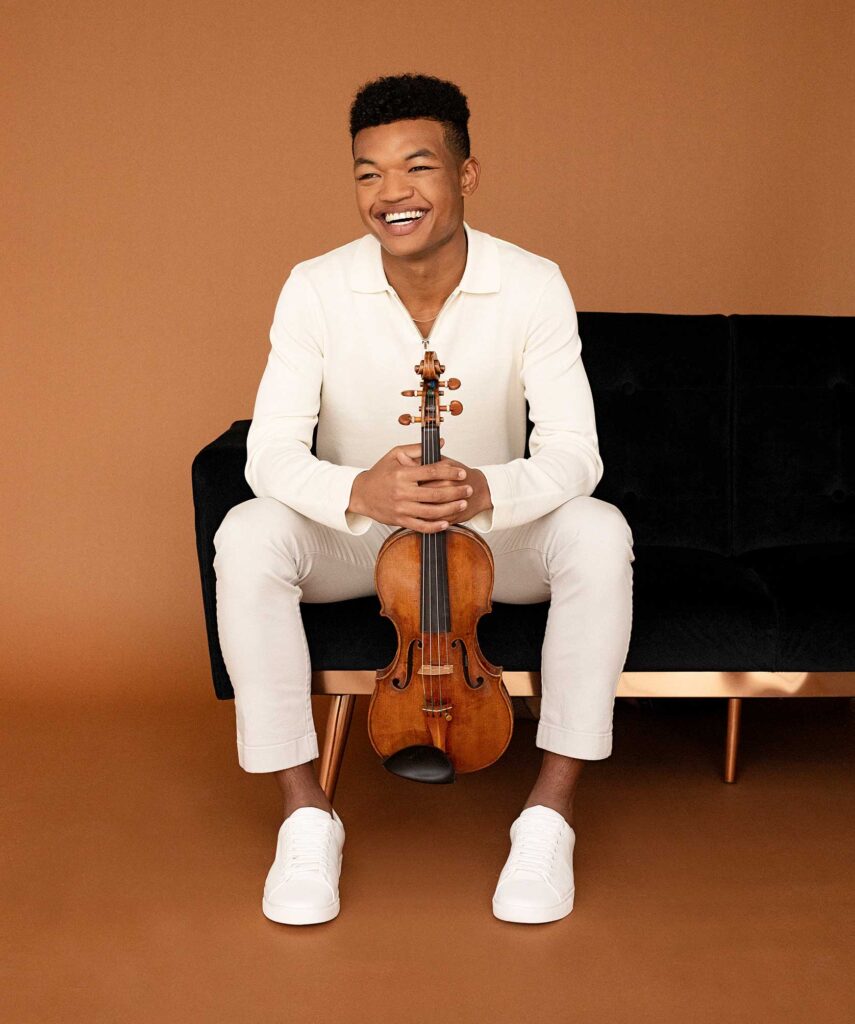
African American prodigy violinist Randall Goosby will make his debut with the Boston Symphony Orchestra in February. At the age of 28, Goosby has already put out two classical albums, won innumerable awards and performed globally. To put his success in perspective, he debuted with the Jacksonville Symphony at age 9. Boston is next on the list of audiences to dazzle.
Goosby brings a fresh energy and perspective to the classical scene, and not just because of his electric talent. In his album “Roots” and in much of his performance work, Goosby prioritizes highlighting African American composers and musical history.
“Classical music has not been a space in its entire existence, really, for Black creatives, specifically, but also for more diverse backgrounds to enjoy success and recognition,” says Goosby. “By sharing the voices of musicians and composers who we don’t already know everything about, we are getting a little tiny window into the experience, the life, the background, the culture.”
Goosby is working on his third album with Decca Classics, where he signed exclusively in 2020. Though the track list is still in progress, Goosby says that this new album will focus on the relationship between the violin and the human voice, a departure from his previous work.

Violinist Randall Goosby will perform Bruch’s “Violin Concerto No. 1” with the BSO. PHOTO: JEREMY MITCHELL
In Boston, during two concerts on Feb. 2 and 3, Goosby will perform Max Bruch’s “Violin Concerto No. 1” under the direction of Andris Nelsons.
“Boston is one of those extremely prestigious, storied organizations,” says Goosby. “I’m really excited to work with Maestro Nelsons. And the Bruch concerto is one of my favorites of all time.”
Bringing in more diverse musicians and orchestra participants is one of the ways the Boston Symphony Orchestra is approaching equity and inclusion and presenting a symphony that better reflects the population of Boston itself.
Another recent example of this is the appointment of Georgetown University Associate Professor Carlos Simon to the new role of Deborah and Philip Edmundson Composer Chair at the BSO. The symphony commissioned a piece called “Four Black American Dances” from Simon last year and it was extremely well received. This appointment is an opportunity for Simon’s original work to continue to flourish.
Goosby hopes that as orchestras and classical music spaces welcome more diverse talent and feature more performances of works by BIPOC composers, greater creativity and connectivity will result.
“I think the more varied stories we can tell through music,” he says, “the more people, of all walks of life and all different backgrounds, we will ultimately be able to connect with.”







